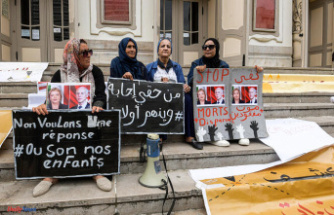Fernanda da Silva, like millions of Brazilians, was not too long ago going hungry.
The mother of three, aged 40, was unemployed and had little money. Her husband's monthly earnings as doorman (1300 reais = $250), which is just above the minimum wage, kept her family afloat. Ms Silva recalls that it was very difficult for them. "I didn't have any income and was starving."
Just over a year ago Ms. Silva began planting new produce on a piece of land near Cajueiro, Rio de Janeiro's favela, as part of an ambitious plan to create the largest urban garden in the world.
Ms. Silva now puts her green fingers to work - with 34 other gardeners. In return for 500 reais ($95. PS79) per month, she receives heaps of fresh food from the city and heaps of food she can take home at no charge.
She says, "I bring home nutritious food for my children," as she crouchs amongst the colorful rows of carrots, beetroot and cassava, tugging on the occasional weed.
Ms Silva says that the garden's impact is even greater. "We bring food to many people's tables."
The community garden's purpose is to provide income for residents in the nearby favelas (e.g. Ms Silva) and help feed vulnerable people. It should be able to grow food for approximately 50,000 families each year once it is completed in 2024.
The garden is located in Rio de Janeiro's working-class area, on a parcel of land that was once known as a 'quilombo'. This settlement was founded by freed slaves from Africa. Around 900 families were removed to make room for a park that could be used as a viewing area during the Rio Olympics.
An urban garden is being created on a small portion of this park. It is now complete and will grow to a size comparable to a football field (27 acres).
Julio Cesar Barros is the city's soil and crop expert who will lead the project. Half the production will go to favela residents in dire need. The rest will be sold at fair prices with the earnings divided among the gardeners.
He says, "We wanted to prove it's possible for food to be grown within large urban centres like Rio de Janeiro."
Urban gardens are a beacon of hope in Brazil, where hunger is rampant.
This Latin American giant was once the leader in fighting hunger worldwide, thanks to generous public spending that helped millions of people get out of poverty. It reduced the number of hungry people by half between 2004 and 2013, from 9.5% to 4.2%.
However, a severe recession and a soaring inflation have all wiped out these gains. New research from a network of civil societies groups, including Action Aid and Oxfam, revealed that 33 million Brazilians (15.5 percent) are currently hungry.
Luciane Costa, head the Faz-Quem-Quer residents' association, said that the project provided a vital lifeline for many who are struggling to survive.
She hopes that the urban garden will inspire others to help those who struggle with hunger. "What we are doing here is a demonstration of what's possible... I hope we can be an example to others."
The experience was life-changing for Ms Silva, the gardener.
She says, "It has brought my such joy to be here and to be part of this – to do what I love which is to work in the soil, to plants." It's been an amazing opportunity for me."












